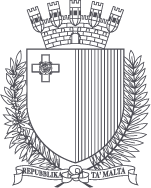
Just three years after becoming independent, Malta took a bold proposal to the United Nations General Assembly: a law that would act as a ‘Constitution for the Oceans’, the brainchild of a visionary – Arvid Pardo. But it would take 27 years from Pardo’s historic address for UNCLOS to finally become international law
It was firstly a proposal of peace to the United Nations from the newly independent Maltese islands: a prophetic speech to the General Assembly from Malta’s permanent representative Arvid Pardo, one November of 1967, to consider the resources of the oceans beyond their national jurisdiction as “the common heritage of mankind”.
But this quest for an international legal order for the sea was not without its obstacles. And even “the Father of the Law of the Conference” himself would later come to believe that the final United Nations Convention for the Law of the Sea did not deliver its promised aim to help developing nations reap the benefits of mankind’s maritime heritage.
Considering that Malta was the smallest member of the United Nations by area in 1967, the proposal was certainly a bold step: a radical treaty that ensured the world’s peaceful use and sharing of the oceans’ bounty.
Born in 1914, the son of a Swedish mother and Maltese father, Arvid Pardo was raised in Italy and earned degrees in history and law from the University of Tours in France. During World War II, he was a member of the Italian underground but was captured and imprisoned repeatedly between 1940 and 1945. He finally managed to walk to Allied lines, eventually reaching London.
It was there that he learned of efforts to form a new peace organisation, the United Nations. Starting work there as a clerk, he eventually rose to the post of UN representative in Somalia and Ecuador during the 1950s and early 1960s. But it was when Malta joined the UN as a newly independent state in 1964, that Pardo became its permanent representative, serving until 1971.
His stirring speech to the General Assembly for a Law of the Sea came with a call that the world’s oceans were to be considered “the common heritage of mankind”. Informed by the economic developments of the 20th century, especially the technological advances of deep-sea drilling for minerals, Pardo raised the question of who should profit from the mining: the diplomat argued that the world’s least developed countries should be first in line.
The 1958 Geneva Convention on the Law of the Sea had granted coastal states the sovereign right to exploit and explore the resources of the continental shelf in depths of 200 metres or less; but Pardo saw that this benefited technologically advanced countries, with the capability to exploit these resources.
Pardo was concerned that the laissez-faire regime on the high seas led to an unfair exploitation of natural resources, allowing the gap between the rich North and the poor South to widen in favour of the more technologically advanced countries. He believed this exploitation should benefit developing nations first, advancing the notion that no state could appropriate such natural resources “because they belonged to all of humanity, those living and also those who still had to be born.”
Pardo himself had predicted that many UN member states, especially the more industrialised, would be reluctant to abandon their expected freedoms to exploit the seabed. And indeed, by the time UNCLOS was opened for signing in 1982, Pardo’s conception of the common heritage of mankind, as he understood it, had been left out of the final draft.
The Maltese draft, for example, was that within the 200-nautical mile limit, coastal states were obliged to make contributions to the international community in exchange for the financial benefits derived from those resources. Ultimately, UNCLOS required coastal states to make a contribution only in relation to the exploitation of non-living resources of the continental shelf beyond the 200-nautical mile limit. Indeed, many developed countries refused to sign the Convention, because they saw that it discouraged mining activities by individual states and the private sector.
Much to Pardo’s chagrin, by the time UNCLOS was modified in 1994 to put an end to the impasse from developed nations, the concept of common heritage of mankind had been turned into a free exploitation of common space. “It is probably the most inequitable treaty that has ever been signed in the world,” he had said in 1981. Nonetheless, he supported the treaty as drafted because it still upheld the idea of global negotiation and the cooperative management of the seas’ resources.
What started out as an odyssey in 1971 for the UN to draft a constitution for the world’s oceans, was only finally ratified in 1994 with the requisite support of 60 nations. But it was Pardo’s vision and Malta’s initiative that were to lay the solid foundations for UNCLOS – such was this Maltese diplomat’s influential role in putting the oceans onto the global agenda, that he is today known as “the Father of the Law of the Conference”. The Law of the Seas will soon be translated to the Maltese language for the first time ever!






